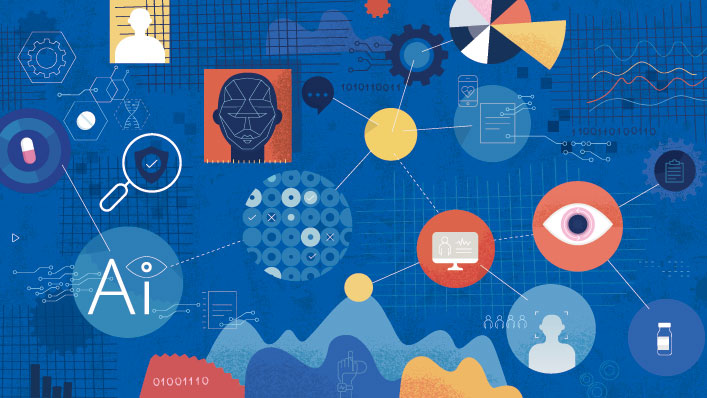Challenge Accepted! Teams of Innovators Compete to Revolutionize Chemical Synthesis
A Million Dollar Challenge to Advance AI

Grace and our parent company Standard Industries recently launched the Standard Industries Chemical Innovation Challenge: Advancing AI-Assisted Molecular Synthesis. With a $1 million prize, the Challenge aims to revolutionize the field of chemical retrosynthesis by leveraging the power of artificial intelligence (AI) and machine learning (ML). The goal? To transform the way that we create fine chemicals—essential building blocks for everything from pharmaceuticals to food supplements.
This chemical retrosynthesis process—when chemists start with a desired molecule and work backward to figure out the best pathway to make it—is a time and resource consuming task that relies heavily on manual analysis and trial and error.
“It’s like solving a maze backwards,” according to Rob Harding, Senior Technology Advisor, Grace.
The Challenge is to leverage AI and ML capabilities to streamline and optimize the process.
Harding continues: “With this Challenge, we’re encouraging researchers to explore how AI and ML can be used to accelerate and improve the process of designing synthetic routes for complex molecules. If we can improve the algorithms and methods that AI models for retrosynthesis, it will accelerate the development of more efficient and sustainable synthetic routes to important medicines, among other things.”
Recognizing this opportunity, Standard and Grace invited companies, academics, and individuals from around the globe to create a machine-based platform that will enhance the efficiency, accuracy, and sustainability of chemical retrosynthesis, to benefit industries ranging from pharmaceuticals to materials science.
In addition to the $1 million award, the winning team will have the opportunity to form a strategic partnership with Grace to work with major pharmaceutical and other companies to supply the materials science expertise that takes products from small-scale trials to large-scale commercial manufacturing.
The Challenge consists of three phases:
- Phase One: Teams submitted white papers outlining their computational approach, proposed training datasets, and model feasibility.
- Phase Two: The top ten participants will create synthetic pathways to molecules using their predictive models and a real-time evaluation interface to showcase their tool’s effectiveness.
- Phase Three: The three finalist teams will tackle challenge molecules and present specific transformations and proposed synthesis pathways.
An impartial panel of judges from academia and business with expertise and experience in organic synthesis, computationally assisted synthesis and computational chemistry are overseeing the competition and will assess each team’s solution.
At the conclusion of the third phase, the judges will choose the winning team based on real world results of the finalists’ predictive models. In addition to the $1 million prize awarded to the winner, the three semi-finalists will each receive $100,000 and up to ten teams that advance through the white paper development phase will each receive $10,000.
The outcome of the Challenge could revolutionize our approach to chemical retrosynthesis—and potentially spur groundbreaking advancements. By harnessing AI/ML, we can drive the creation of novel, safe, and cost-effective synthetic routes more quickly and potentially speed up the drug development and materials science cycle for the benefit of humankind.
Follow the Challenge online and keep an eye on our Insights for updates!
“It’s like solving a maze backwards.”
Senior Technology Advisor